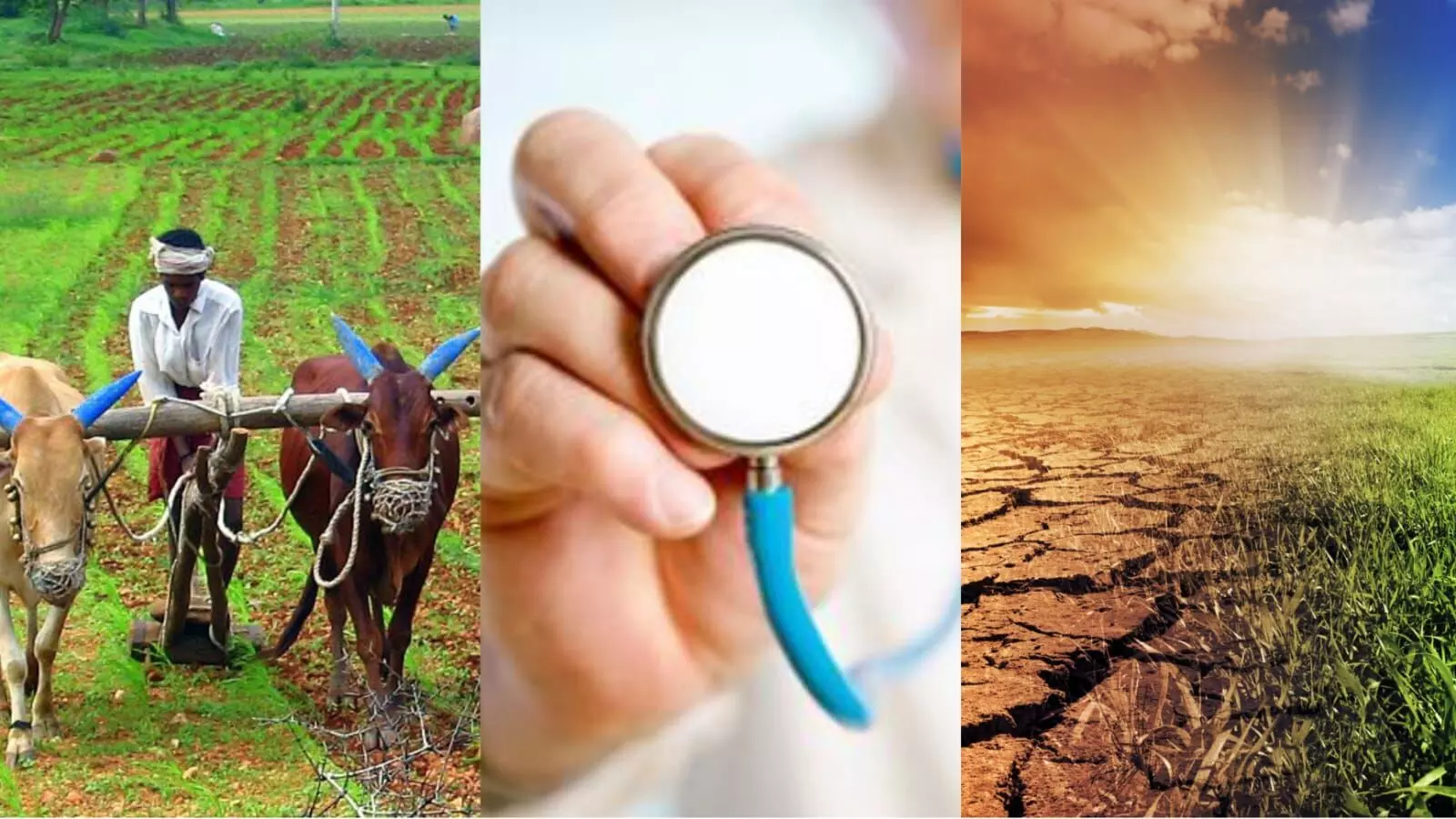The looming climate crisis: Farmers, food security, and health
India is among the countries most vulnerable to climate change. It ranked seventh on the Global Climate Risk Index 2021 with a CRI score of 16.67.
By Neha Raghuvanshi
Hyderabad: Climate change is a defining crisis of our times that is impacting health and livelihoods across the globe. Although it affects all countries, some are more affected than others. India is among the countries most vulnerable to climate change. It ranked seventh on the Global Climate Risk Index 2021 with a CRI score of 16.67.
Climate predictions for the country's southern states at the district level for the period 2021-2050 indicate a warmer and wetter future, with an increase in extreme events, particularly heavy rainfalls that are more frequent and intense.
Telangana is a climate-sensitive state that experiences heat waves, droughts, and floods. The state is historically prone to droughts, with the districts of Rangareddy, Mahabubnagar, and Nalgonda being highly susceptible.
Data asserts that 2.2% of the state is prone to floods. The district of Khammam is identified as being most prone to monsoon floods. It has also been listed among India's most climate-vulnerable districts in Telangana.
Impact on farmers
The rainfed farming systems represent 54% of the net sown area in Telangana. However, they are highly affected by recurring drought and high climatic variability. This is no trivial matter for a state where around 55% of the people rely on agriculture for their livelihood. The weather volatility is adversely affecting the livelihoods of smallholder farm families. However, contrary to popular belief, small and marginal farmers are not the only ones affected.
A study titled "Household Vulnerability to Climate Change and Identification," covering 6,214 households in the drought-prone districts of Telangana to analyze the climate vulnerability of households, revealed that 79% of the households were extremely vulnerable. Data from the survey defies preconceived notions considering large farmers made up approximately 26% of the extremely vulnerable and 19% of the moderately vulnerable groups.
Given the sector's significant contribution to job creation, inclusiveness, food security, and sustainable growth, strengthening the ability of small farmers in the state is a top concern.
Impact on human health
Climate change is the biggest health risk facing humanity. As per projections, hunger, malaria, diarrhea, and heat stress would contribute to an additional 2,50,000 fatalities annually between 2030 and 2050.
Warmer and wetter future predictions for the southern states entail significant health concerns. Climate-sensitive health risks could lead to injury and mortality from extreme weather events. Forced migration brought on by climatic calamities like storms, floods, etc., can result in mental stress. Additionally, it will result in an increase in zoonoses and illnesses that are transmitted by food, water, and vectors.
Saving our tomorrow
While we talk about a better future for our coming generations, it is imperative to consider the impact of climate change. According to a recent report by Save the Children, over 222 million children in India live under the burden of poverty and climate emergency. The climate crisis can decelerate the numerous gains that the world has made in child survival and development.
Building capacities and recalibrating strategies to build climate resilience are crucial, given the multiplier effects of climate change on social and economic disparities.